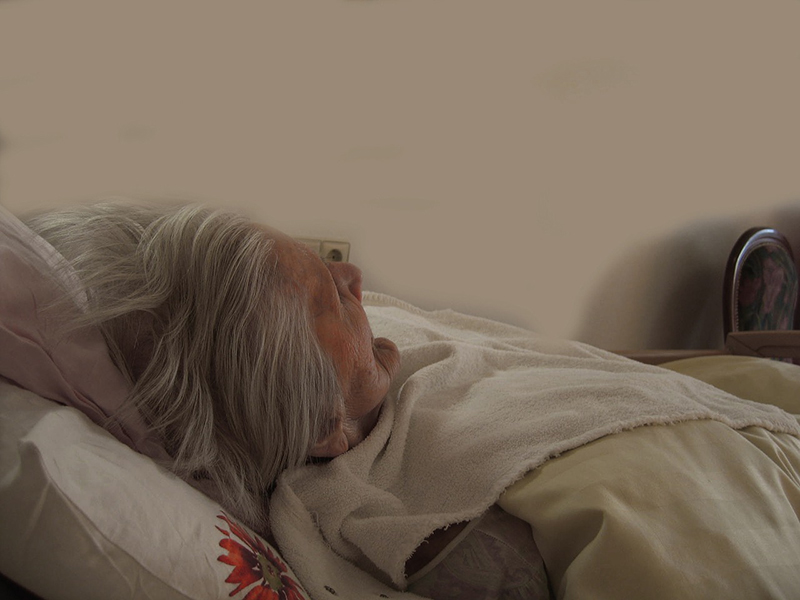“Mrs. Black,” an 85-year-old woman with Alzheimer’s disease, was a resident in a long-term-care facility for three years. She participated in social and recreational programs geared toward people with dementia and loved to sing along to Frank Sinatra.
She knew her nurse by name, and while she did not recognize her family members, she enjoyed their visits immensely. The staff saw her as a happy resident.
Nevertheless, when she was stricken with a life-threatening illness that required aggressive antibiotic treatment, her son, who had power of attorney, refused to authorize the medical intervention. He said he was carrying out the instructions his mother had left for him in her living will.
That document stipulated that if she had an irreversible disease (such as Alzheimers) that caused her not to be able to recognize her family members, the only medical treatment permissible was pain management.
READ: DR. YAKIR KAUFMAN ON PREVENTING DEMENTIA
Mrs. Black is a composite profile drawn anonymously from a number of histories of residents from the various long-term care facilities in Ontario, Marcia Sokolowski, an ethicist, has consulted. Mrs. Black is one of three case studies presented in Sokolowski’s new book, Dementia and the Advance Directive: Lessons from the Bedside.
Sokolowski – who’s the co-director of ethics at Baycrest Health Sciences, an assistant professor in the department of medicine at the University of Toronto and a member of the Joint Centre for Bioethics at U of T – explained that an “advance directive” is an American term for a living will.
An advance directive is essentially a decision that’s made about one’s future care, when one is capable of making such decisions. It is intended to be followed in the event that that person is not capable of making decisions about his or her care in the future.
Sokolowski said that cases like Mrs. Black’s led her to reflect on living wills. She wrote Dementia and the Advance Directive as a way of bringing public awareness to such decisions and the ensuing challenges that may arise for medical teams and family members.
Sokolowski pointed out that when she has consulted on cases like Mrs. Black’s, care teams have been very conflicted about the ethics of following instructions specified in a living will, when a resident is viewed as someone who is happy and has a good quality of life.
The law in Ontario sides with directives made in a living will, or the most recent wish expressed by the person when he or she was of sound mind, Sokolowski explained. Ultimately, the message one may take away from the book is: be careful what you wish for.
Sokolowski said the book highlights issues that may arise from such decisions. “There are limitations with advance directives, because people do not know how they will feel about such wishes as their future selves,” she said. “We may not be good predictors of what we would want in changed circumstances.”
Mrs. Black could not imagine wanting to be kept alive if she had dementia, but she seemed to be enjoying her life, Sokolowski said, noting that research shows that many people with dementia are happy and that they can form new values.
Is it morally justifiable to follow the wishes of an advance directive like Mrs. Black’s, if those wishes seem to be in contradiction to her current best interests?
– Marcia Sokolowski
“We have to question, from an ethics point of view, if her previous capable wishes should have still been respected,” said Sokolowski. “Is it morally justifiable to follow the wishes of an advance directive like Mrs. Black’s, if those wishes seem to be in contradiction to her current best interests?”
An advance directive should not necessary override this observation, Sokolowski argued. “It’s more humanizing to pay attention to the person in front us that we have now and try as best as we can to glean what their preference might be.”
In the case of Mrs. Black, Sokolowski said that, “Our challenge is not only just to look backward to see what she wrote when she was capable. We place too much value on competence.… There is much more to the person than their ability to remember and their cognitive abilities.”










